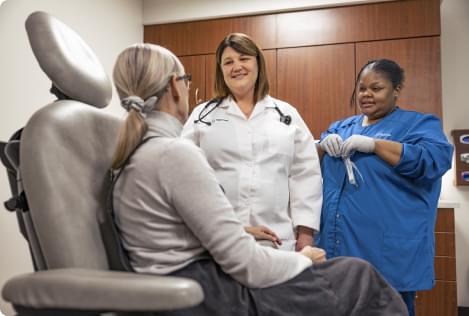Evaluation of Pain Complaint
Evaluation of the pain complaint includes a complete medical history and physical examination targeted to the pain complaint. All current medications are reviewed, including both prescription and over-the-counter medications. Please be sure to bring a complete list of your medications or actual medication vials to each office visit.
If diagnostic testing has been completed, copies of reports are needed to assist in the evaluation of your pain complaint. Please have these sent to the UM Health-SparrowPain Management Center or bring them to your first visit. Records of previous treatments for your pain are also important. Knowing your response to previous treatments will assist us in tailoring your treatment plan. Please have prior medical records forwarded to us.
If necessary, further diagnostic testing may be ordered by the UM Health-Sparrow Pain Management Center staff. It is important to understand that the exact reason for your pain may not be discovered, but testing may rule out serious underlying conditions, which may be responsible for your pain.
Nerve Block Therapy
Nerve block therapy consists of injections to reduce the sensation of pain.
The procedures are done by our staff anesthesiologists, who are specialists in pain management. The procedures may be diagnostic, to help determine what is causing the pain, or treatments to help reduce the pain.
Examples of these procedures are epidural steroid injections, facet joint injections, trigger point injections, sympathetic blocks, peripheral nerve blocks, and rhizotomies.
Medication Management
Medication management is the development of a medication regimen to help decrease pain.
A goal of medication management is to reduce pain and improve functioning, without undue medication side effects. Another goal is to improve sleep, especially when the pain problem interferes with an adequate sleep pattern. Medications may include both analgesics (pain relieving medications) and adjuvant medications, such as antidepressants, anticonvulsants, and muscle relaxers, which work along with the analgesics, to help them be more effective.
If you receive narcotic pain relievers, you will be asked to follow the terms of a narcotic contract in order to maintain a safe, controlled treatment plan.
Typically, the Pain Management Center staff will develop the medication regimen, and discharge the patient to the primary care provider when stable on medications. At that time, the primary care provider will generally assume prescription of the medications.


